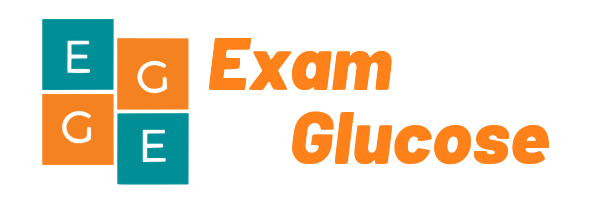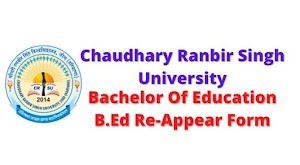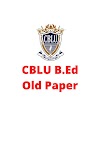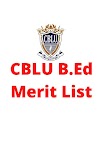The Junior Research Fellowship (JRF) in Mathematics is a coveted qualification for aspirants aiming to pursue a career in research and academia. With its rigorous syllabus and challenging questions, clearing the JRF Mathematics exam requires thorough preparation, and one of the most effective strategies to achieve success is solving previous years' question papers.
In this blog post, we'll discuss why practicing JRF Mathematics previous year question papers is crucial, how it can enhance your preparation, and tips on how to use these papers effectively.
Why Previous Year Question Papers Matter
1. Understanding the Exam Pattern
The JRF Mathematics exam consists of various sections covering a wide range of topics like algebra, analysis, topology, differential equations, and more. By solving previous year question papers, you can gain a clear understanding of the exam pattern, distribution of marks, and the types of questions typically asked. This helps in structuring your preparation and focusing on high-weightage topics.
2. Familiarity with Question Types
Every year, some questions may be repeated or have similar patterns. Going through past papers exposes you to the style and nature of questions, whether they are conceptual, computational, or application-based. Familiarity with these question types reduces exam anxiety and boosts your confidence.
3. Time Management
The JRF exam is not just about knowledge but also about speed and accuracy. Practicing previous year papers under timed conditions helps you build the skill of managing time effectively. You will learn which sections require more time and where you can afford to move quickly, ensuring you complete the exam within the allotted time.
4. Identifying Strengths and Weaknesses
By regularly solving past papers, you can identify the topics you're strong in and the areas where you need more practice. This allows you to fine-tune your study plan, focusing on weak points and polishing your strengths.
5. Improving Problem-Solving Techniques
The JRF Mathematics exam often presents tricky questions that test your conceptual understanding and problem-solving abilities. Regular practice with previous year papers helps in developing effective techniques to tackle difficult questions, enhancing both your accuracy and speed.
How to Effectively Use Previous Year Question Papers
1. Start Early
Begin solving previous year papers at least two to three months before the exam. This gives you ample time to review and analyze your performance, allowing for course corrections in your preparation strategy.
2. Simulate Exam Conditions
When solving these papers, simulate the exam environment as closely as possible. Find a quiet space, set a timer, and work through the paper without distractions. This not only improves your focus but also gives you a real sense of the exam pressure.
3. Review and Analyze
After completing each paper, spend time reviewing your answers. Analyze the mistakes you've made and revisit the relevant concepts. This is crucial in converting your errors into learning opportunities.
4. Use as a Revision Tool
In the final weeks leading up to the exam, use previous year papers as a revision tool. Instead of going through books and notes, solving these papers will help you recall concepts faster and more effectively.
5. Seek Help for Doubts
If you find certain questions difficult or concepts unclear while solving the papers, don’t hesitate to seek help. Discuss with peers, consult professors, or use online forums to clarify doubts. Understanding every problem-solving method is essential for success in the JRF exam.
Where to Find JRF Mathematics Previous Year Question Papers
There are several sources where you can find past question papers:
- Official Websites: The official websites of exam conducting bodies like CSIR and UGC often provide archives of previous years' papers.
- Coaching Institutes: Many coaching institutes offer previous year papers as part of their study material or on their websites.
- Online Educational Platforms: Several educational platforms and apps provide a repository of previous year question papers along with detailed solutions.
- Books: Various books are available that compile past papers, often categorized topic-wise, making it easier for targeted practice.















0 Comments